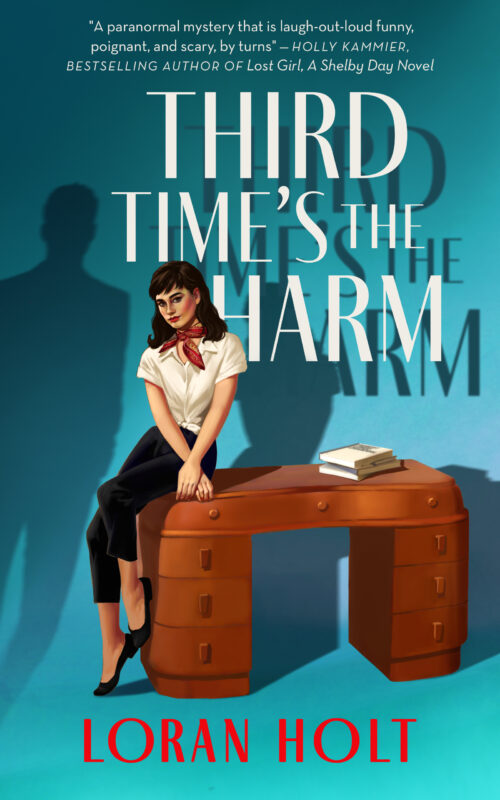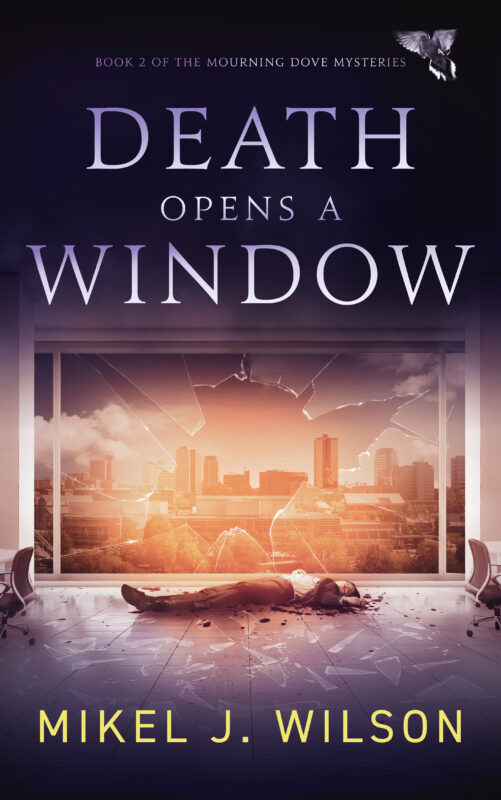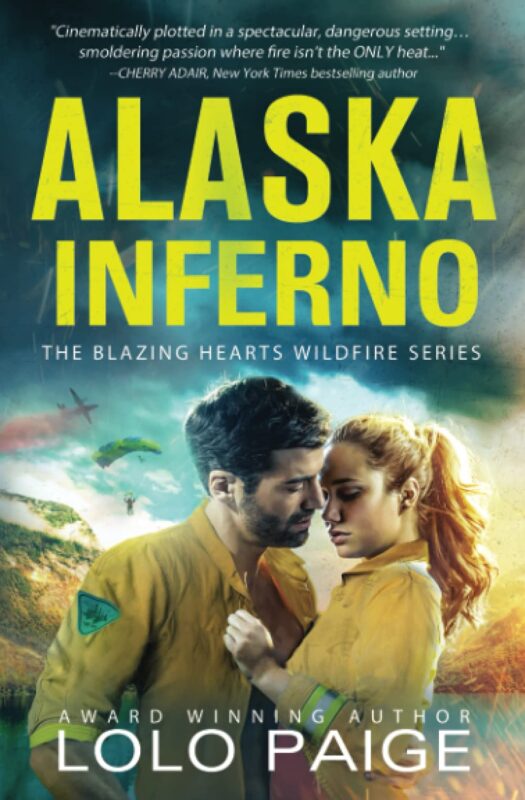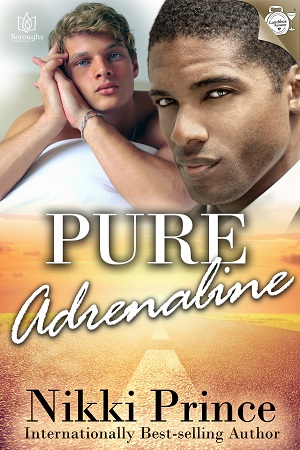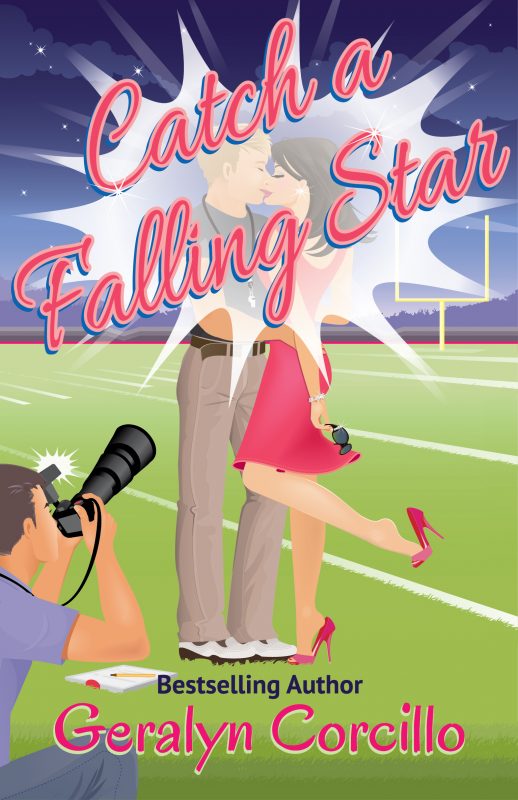Washed Up
June 30, 2025 by Dianna Sinovic in category Quill and Moss by Dianna Sinovic, Writing tagged as Jersey Shore, mystery, writing
“Did I tell you about the time Aunt Jen and I found a wooden box on the beach?” Molly pulled her jacket tighter against the chill that had descended along with the sunset. Her three kids sat around the fire with her, listening to the crackle of the flames as the night around them darkened.

“A treasure chest?” Aaron, the romantic in her crew, clapped his hands in anticipation. She smiled. Of course his imagination would leapt to a tale of pirates and doubloons. This was his birthday weekend, the reason they were camping.
“I’m afraid not,” Molly said. “It was a small box, room for only two or three coins. That’s not much booty.” She held up her hands to mime the size—more of a ring box than anything.
Aaron’s face registered disappointment, but Lara perked up. “Jewelry!” She was a year older than Aaron. “Earrings and gold strands, I’ll bet.”
Not willing to be outdone by his sister, Aaron immediately countered. “It was a tiny map that led to buried treasure.”
“No.” Treena, at thirteen, two years older than Lara, filled the captain’s role for Molly’s gang of three. She offered her pronouncements calmly but forcefully. One day she’d be a CEO, Molly predicted. “Let Mom finish her story. I doubt it was any of those things.”
“Do you want to venture a guess?” Molly put another piece of wood on the fire. They were camped on a friend’s property, on their way to the Jersey Shore, their destination for tomorrow. “What I remember best was that the top of the box had an octopus carved into it. Its tentacles hugged the sides.”
“Where is it now? Or did you lose it?” Treena’s gaze challenged Molly, a more and more frequent occurrence these days. And just like the teen to hit on the stickiest part of the story.
What possessed me to bring up the box?
“Your dad took it when he left.” Molly stirred the fire again to buy some time. “So, no, I don’t have it. He may have tossed it.” Like so much else Kurt had tossed in their lives. It took years of not seeing that—until the day it was so obvious she cringed.
“You still haven’t said what was in the box.” Lara was hopping from one foot to the other.
“And why would Dad want to take it when it was yours?”
Precisely because it was hers. She’d searched for it in the days after he walked out, even as she grasped that the empty spot in her drawer was there because he couldn’t resist one last blow. Still, she refused to talk trash about her ex; he had visitation rights.
“In the box …” Molly let the words linger. “No gold coins, no jewelry, no treasure map. Aunt Jen was probably thirteen, like you, Treena. That would have made me twelve.” She’d kept the box despite its warped wood and a chipped corner, despite Jen’s worry it was infested with sand fleas (it wasn’t). She’d kept the box as a memento of her childhood, of a time when Jen was strong and healthy.
“When we pried it open, we thought we’d find a note written by someone who was lost at sea.” It hadn’t occurred to them that any paper note would have turned to pulp.
“But it was empty,” Treena said. Her tone shaded in her opinion: stupid story.
“It was not empty.” Nestled inside was a pair of dog tags, pitted and corroded by years soaking in saltwater. She and Jen could make out the soldier’s first name, but the last name and military ID were undecipherable. Blood type O+, religion Lutheran. They guessed Navy, but it could have been Army—only the “y” at the end of the word was clear. They also guessed at the war, the same one their great-grandfather had fought in.
For years, Molly studied the dog tags and wondered. Was he already dead or about to drown when the tags were stashed in the box? Who would have removed them and why? His imagined face surfaced in her teenage dreams; a young face, of course, a face far different from the man she ended up marrying.
When their third child was born—finally, Kurt said, a son—she named him Aaron, to honor that long-dead sailor. Kurt didn’t understand her fascination, and maybe she didn’t either. She just knew she was drawn to the stranger.
“Your namesake,” Molly finally said to her son. “That’s what was in the box. That’s why I told the story tonight. It’s a true birthday tale.”
More of Dianna’s stories
And the Winners Are . . .
June 13, 2025 by marianne h donley in category From a Cabin in the Woods by Members of Bethlehem Writers Group tagged as 2025 BWG Short Story Contest, Illusive Worlds, Winners, writing
2025 BWR Short Story Award winners!
BWG is happy to announce the winners, chosen by their terrific guest judge, Adrian Tchaikovsky. They wish to express their thanks to all who entered and permitted them to read their excellent and interesting work.
1st Place: “Smiling Fish” by Avery Other of Lincoln, NE
2nd Place: “Missing Ingredients” by Natalie Bucsko of Cumming, GA
3rd Place: “A Fine Line in the Sand” by Mizuki Yamagen of Louisville, CO
Honorable Mentions (in alphabetical order by author’s last name):
“Delivering a New Perspective” by Mounir Derdak of Mississauga ON
“The Singer from Akrotiri” by Larry Ivkovich of Coraopolis, PA
“Peaches” by Avery Other of Lincoln, NE
“The Fish Man of Mahoney Creek” by Jess Simms of Pittsburgh, PA
Don’t forget, BWG will run another contest, starting on January 1, for the 2026 Short Story Award.

Down to Earth
May 30, 2025 by Dianna Sinovic in category Quill and Moss by Dianna Sinovic, Writing tagged as climate fiction, short fiction, writing
Lily pressed her flowered handkerchief to her forehead and wondered for the fifth time that day why she had signed up for the Festival of the Earth event. The May sun beating on the roof of her canopy turned it into a DIY heat lamp. Stacks of her ecological thriller sat ignored on her table. The crowd was more interested in the pastry shop’s tent next door, the line for lunch turnovers stretching down the mown pathway from the parking lot.

She’d hoped to sell at least several copies of her book Unplugged, a fictional tale about a full-off-the-grid society; after all, its theme aligned nicely with the festival’s. In fact, the vendor on the other side of her was hawking solar panels, and she considered flagging everyone who passed her up to let them know her book was relevant—her main character had four panels on the roof of her cottage.
It didn’t help that the cumin-and-coriander aroma of the turnovers made her stomach grumble. Her packed lunch of peanut butter and jelly had lost all appeal in comparison.
Another hour in, and one book sold, to the mother of a family of three littles ready, she said, for something “more mature than Sesame Street.” Lily tucked away the cash in her pouch and watched the family stream toward the kids’ crafts tent—a place where youngsters could launch gigantic bubbles to float elongated and short-lived across the nearby park field.
She sighed. Even with the sunny weather, the day was a bust so far. Not ready to give up yet, though, she left her booth long enough to introduce herself to the solar vendor. Networking was important at sales events. Busy in the full sun, the vendor was bent over the electrical hookup for the largest of his panels, muttering under his breath. He didn’t seem bothered by the heat, even as Lily fanned herself with an event program.
“Just wanted to mention that the novel I’m selling today is about folks who embrace solar.” Lily stuck out a hand, but withdrew it when the vendor ignored her. “That’s a nice fit with what you’re selling. You know, about being unplugged.” When he finally looked up, he squinted at her with a frown. “Nobody reads books any more.”
The hell they don’t. She stomped back to her table, threading her way through another wave of potential tire-kickers for the solar cells. “Stop by my booth next,” she called to them, with a friendly wave. “I’ve got free snacks!”
But her mini-bags of pretzels were no match for the tasty turnover tent, and eventually Lily succumbed, taking a spot at the end of the long queue. She hoped the turnover supply would last until she arrived at the front of the line.
“You’re Lily Spruce, right?” The young woman at the turnover counter wrapped up a chicken turnover for her, but waved away the bills Lily offered. Her name tag read Rachael in precise hand-lettering. “I read your book on a friend’s recommendation. Really, really good. This is my contribution toward your authorial efforts.”
“Wow,” Lily managed to say. “Thanks.” Back at her booth, she savored the unexpected treat—from an unexpected fan. The day was worth it for that, if nothing else, she decided. And a breeze picked up, carrying away some of the tent’s stifling warmth and bringing with it the faint rumble of thunder.
It was then that she noticed the advancing cloud bank. Checking her phone, she skimmed the severe weather warning. As though one of the next-door solar panels had activated, the energy of the crowd changed to one of urgency. Already the wind increased, making the canopy tents pop and threatening to send them aloft. The line dwindled to nothing for Rachael, the turnover vendor. The kids’ craft tent emptied, and people hurried toward the parking area.
Lily packed away her books, wrapping them in plastic against the approaching rain, and pulled out her rain slicker. The smell of rain mixed with the lingering aroma of cumin and coffee.
In the next booth, Rachael struggled against the wind to take down her canopy. Lily sprang into action. “Let me help. And then maybe you can help me with mine.”
Rachael looked up, surprised. “Sure thing.”
Together they collapsed the canopy, working in a light mist. Then they tackled Lily’s, and slipped the tent into its sleeve just as the mist turned to rain.
The park stretched out beyond them, now empty. Only a few vendors remained; the rest had fled.
Rachael pulled her wheeled cart onto the pathway, heading for the parking area. “So much for a festival for the Earth,” she said. “A pity it’s rained out.”
Wasn’t that the definition of unplugged? Lily pictured her novel’s protagonist, facing whatever Mother Nature threw at her: storm, drought, flood, heavy snow. You were thankful for sunny skies when you got them, but the changing weather kept things interesting.
“It’s all part of life,” Lily said with a shrug. “But hey, we can make the most of it. Let’s go grab a beer and commiserate.”
Dianna Sinovic’s Books
MIRROR, MIRROR: A WRITER’S REFLECTION BY VERONICA JORGE
May 22, 2025 by Veronica Jorge in category Write From the Heart by Veronica Jorge tagged as art, reflection, revelation, words, writing
The painter stares at the canvas waiting for an image to appear. Patiently, he waits until a faint imprint of a landscape or a face emerges. He then grabs a brush and dabs it into the paint on his palette, making haste to reach the canvas with his brush to capture the image. The artist contrasts shade and light. He tightens or increases space. His brush moves rhythmically or scratches across the linen to make the colors and texture warm or cool. The work he renders leaves the viewer feeling airy or heavy.
That’s how I feel when I write. I stare at a blank page as though something secret lay hidden deep within the fibers and emptiness, that by patiently waiting will reveal itself to me. So I wait…until a word, a phrase, or a picture appears.
Could it be that the blank screen or journal page is a powerful mirror able to enlighten my own ideas and though ts? Is it I who write on the paper; or does the paper draw out what is inside of me?
ts? Is it I who write on the paper; or does the paper draw out what is inside of me?
My words pour out and my hand races across the page. My mind tries to keep up with both for they seem to move of their own volition depicting moments dark and light. Paragraphs heavy laden with emotion yield and give way to joy and humor, while spacing slows or hurries the reader along.
Finished, I sit back exhausted and, ignoring my headache, I read what I wrote. Awestruck, I ask, “Where did this come from?”
My trembling fingers turn the leaf to uncover a new blank page and my sweaty palm smooths the journal sheet flat. Pen in hand, I sit ready to capture another treasure. My eyes dilate seeking and waiting for new wonders to behold.
See you next time on June 22nd.
Veronica Jorge
Books Review by Veronica
WHY DON’T YOU WRITE ABOUT IT?
April 19, 2025 by marianne h donley in category Apples & Oranges by Marianne H. Donley, Guest Posts tagged as films, geoffrey allen murphy, scripts, writing
Today we are featuring a guest post by Geoffrey Allen Murphy.
Geoffrey Allen Murphy is a New York City based Writer, Actor, and (now) Director. Geoffrey has appeared as an actor on Broadway in To Kill a Mockingbird, The Nance, and War Horse, various shows Off-Broadway and regionally, and on Television in “Elsbeth”(upcoming), “Your Friends & Neighbors” (upcoming), “The Gilded Age,” “Law & Order: SVU,” “The Good Fight,” “Orange is the New Black,” “Blacklist,” “Forever,” and “Gotham.” He is a graduate of The Juilliard School.

Why don’t you write about it?
“Why don’t you write about it?” my therapist said.
It sounded cliche. Trying to process what had just happened through writing felt like trying to bail out a sinking cruise ship with a thimble.
“It might help.”
Ok. Fine.
I had just had the most catastrophic doctor’s appointment of my life. My doctor, the esteemed specialist, the medical wizard in his field, just told me I had a “significantly reduced life expectancy.” Not dying today, or tomorrow, but soon and, obviously, for the rest of my life.
Ok. I’ll write.
But what? How do I even begin?
Sitting in front of my computer, I confronted that demon, the blinking cursor, as it rhythmically mocked my pain. It flowed out. The years of medical mysteries. The pain. The fear. The fear was the worst part. The uncertainty. I put it all on the digital page.
It came out as a screenplay, my usual format of writing, but what came out was weird. Different from my usual work. It jumped in time, it had extensive voice over (a device I usually hate), and it was short. Short films had always been a mystery to me.
It was short. It was sad. It was sweet. It was funny. And it was everything I was going through, had gone through, and feared was to come.
Finishing it, it’s true, did help.
Everything rattling in my brain and heart now had a home. Was I no longer afraid? Hell no. I was scared shitless. But now, I somehow felt less alone. Me and my pages: Warriors against death.
Two weeks later, I went to a different doctor and got a better prognosis, but honestly, I still haven’t been able to shake the fear that each breath might be my last.
I also couldn’t shake the feeling that others are going through the same feelings facing their own unique struggles every day.
The thing I had written had helped me. Could it help others?
It was short. It was producible. And after all, why not me? You only live once. And no one knows for how long. So why not do something that scares the bejeezus out of you.
So this therapeutic salve is now in pre-production to become an actual film that I am directing. And to be honest, I have no idea how it will get done. But it will.
We are crowdfunding our budget (there is a link below if you want to support us), and we have an incredible team assembling to make some art that is sad, funny, sweet, and brief.
So what is the moral of this story? Listen to your therapist?
Yes. Do that. Please.
But I don’t think that is the moral. The moral is to keep going. Don’t let tragedy or sadness or pain or fear stop you from letting out what you need to express. Even if expressing it is terrifying.
Do it.
Keep going.
You are not alone.
Thank you for any support you may offer for my film at this link:
seedandspark.com/fund/so-youre-dying
0 2 Read moreAffiliate Links
A Slice of Orange is an affiliate with some of the booksellers listed on this website, including Barnes & Nobel, Books A Million, iBooks, Kobo, and Smashwords. This means A Slice of Orange may earn a small advertising fee from sales made through the links used on this website. There are reminders of these affiliate links on the pages for individual books.
Search A Slice of Orange
Find a Column
Archives
Featured Books
THIRD TIME’S THE HARM
Uncle James wants her to investigate a murder. His, that is.
More info →ALASKA INFERNO
Can a series of wildfires lead to true love under a midnight sun?
More info →CATCH A FALLING STAR
A TV star tells the paparazzi she's engaged to a high school football coach, but she doesn't tell him … because she barely even knows him.
More info →Newsletter
Contributing Authors
Search A Slice of Orange
Find a Column
Archives
Authors in the Bookstore
- A. E. Decker
- A. J. Scudiere
- A.J. Sidransky
- Abby Collette
- Alanna Lucus
- Albert Marrin
- Alice Duncan
- Alina K. Field
- Alison Green Myers
- Andi Lawrencovna
- Andrew C Raiford
- Angela Pryce
- Aviva Vaughn
- Barbara Ankrum
- Bethlehem Writers Group, LLC
- Carol L. Wright
- Celeste Barclay
- Christina Alexandra
- Christopher D. Ochs
- Claire Davon
- Claire Naden
- Courtnee Turner Hoyle
- Courtney Annicchiarico
- D. Lieber
- Daniel V. Meier Jr.
- Debra Dixon
- Debra H. Goldstein
- Debra Holland
- Dee Ann Palmer
- Denise M. Colby
- Diane Benefiel
- Diane Sismour
- Dianna Sinovic
- DT Krippene
- E.B. Dawson
- Emilie Dallaire
- Emily Brightwell
- Emily PW Murphy
- Fae Rowen
- Faith L. Justice
- Frances Amati
- Geralyn Corcillo
- Glynnis Campbell
- Greg Jolley
- H. O. Charles
- Jaclyn Roché
- Jacqueline Diamond
- Janet Lynn and Will Zeilinger
- Jaya Mehta
- Jeannine Atkins
- Jeff Baird
- Jenna Barwin
- Jenne Kern
- Jennifer D. Bokal
- Jennifer Lyon
- Jerome W. McFadden
- Jill Piscitello
- Jina Bacarr
- Jo A. Hiestand
- Jodi Bogert
- Jolina Petersheim
- Jonathan Maberry
- Joy Allyson
- Judy Duarte
- Justin Murphy
- Justine Davis
- Kat Martin
- Kidd Wadsworth
- Kitty Bucholtz
- Kristy Tate
- Larry Deibert
- Larry Hamilton
- Laura Drake
- Laurie Stevens
- Leslie Knowles
- Li-Ying Lundquist
- Linda Carroll-Bradd
- Linda Lappin
- Linda McLaughlin
- Linda O. Johnston
- Lisa Preston
- Lolo Paige
- Loran Holt
- Lynette M. Burrows
- Lyssa Kay Adams
- Madeline Ash
- Margarita Engle
- Marguerite Quantaine
- Marianne H. Donley
- Mary Castillo
- Maureen Klovers
- Megan Haskell
- Melanie Waterbury
- Melisa Rivero
- Melissa Chambers
- Melodie Winawer
- Meriam Wilhelm
- Mikel J. Wilson
- Mindy Neff
- Monica McCabe
- Nancy Brashear
- Neetu Malik
- Nikki Prince
- Once Upon Anthologies
- Paula Gail Benson
- Penny Reid
- Peter J Barbour
- Priscilla Oliveras
- R. H. Kohno
- Rachel Hailey
- Ralph Hieb
- Ramcy Diek
- Ransom Stephens
- Rebecca Forster
- Renae Wrich
- Roxy Matthews
- Ryder Hunte Clancy
- Sally Paradysz
- Sheila Colón-Bagley
- Simone de Muñoz
- Sophie Barnes
- Susan Kaye Quinn
- Susan Lynn Meyer
- Susan Squires
- T. D. Fox
- Tara C. Allred
- Tara Lain
- Tari Lynn Jewett
- Terri Osburn
- Tracy Reed
- Vera Jane Cook
- Vicki Crum
- Writing Something Romantic
Affiliate Links
A Slice of Orange is an affiliate with some of the booksellers listed on this website, including Barnes & Nobel, Books A Million, iBooks, Kobo, and Smashwords. This means A Slice of Orange may earn a small advertising fee from sales made through the links used on this website. There are reminders of these affiliate links on the pages for individual books.




























































